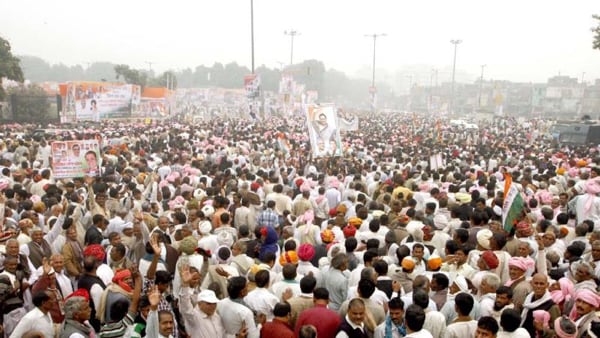The U.S. and European nations have called on Iran to return to negotiations and cooperate with nuclear inspectors, renewing diplomatic efforts after the re-imposition of United Nations sanctions. The announcement came after UN leaders rejected a request to extend the deadline for sanctions, which went into effect early Sunday in Tehran, reactivating penalties that were lifted as part of the 2015 nuclear agreement.
U.S. Secretary of State Marco Rubio emphasized that a negotiated deal remains the best outcome for Iran. He stated, “President Trump has been clear that diplomacy is still an option. For that to happen, Iran must accept direct talks, held in good faith, without stalling or obfuscation.”
In August, the UK, France, and Germany initiated the snapback mechanism—a provision in the 2015 accord designed to regulate Iran’s nuclear activities—giving Tehran 30 days to adhere to specified demands or face the re-implementation of international sanctions.
The E3 bloc reiterated their commitment to diplomatic engagement, insisting that the reinstatement of UN sanctions is not the end of negotiations. They urged Iran to avoid escalating tensions and to return to compliance with its legally binding nuclear safeguards obligations.
Iran has consistently denied that its nuclear program is intended for military use. President Masoud Pezeshkian confirmed that Iran will remain part of the Nuclear Proliferation Treaty. Following the E3’s actions, there were concerns among diplomats that Tehran might withdraw from the agreement designed to prevent nuclear weapons proliferation.
On Saturday, Pezeshkian stated that the Trump administration had demanded Iran relinquish its entire stockpile of enriched uranium in exchange for temporary relief from the impending sanctions, a proposal he deemed “absolutely unacceptable.” He argued that such demands would only lead to further pressure to trigger the snapback.
Iran’s currency reached a historic low on Saturday, according to local media reports and a Tehran-based trader. In a televised speech, Iran’s Supreme Leader Ayatollah Ali Khamenei declared that negotiations with the U.S. represent a “dead end,” asserting that under current conditions, dialogue would pose significant harm to the country, some of which could be irreversible.
Khamenei reiterated that Iran does not intend to pursue nuclear weapons, stating, “We don’t have nuclear bombs, we won’t have them, and we have no intention of using nuclear weapons, but we do have enrichment.”
On Saturday, Iran’s foreign ministry announced the recall of ambassadors to the UK, France, and Germany for “consultations” concerning the snapback mechanism, labeling the action as “irresponsible.” The ministry did not specify when the ambassadors might return.
The E3 expressed their commitment to working with all parties toward a new diplomatic solution to prevent Iran from acquiring a nuclear weapon, urging all UN member states to implement the newly reinstated sanctions.
In an upcoming parliamentary session scheduled for Sunday, Iranian lawmakers will discuss a letter advocating for a reevaluation of the country’s policy on nuclear weapons, raising tensions in the ongoing diplomatic confrontation surrounding Tehran’s nuclear activities.










